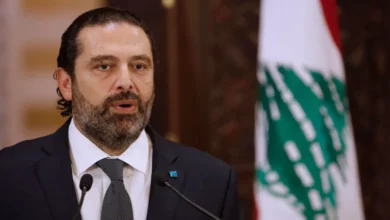Protests planned in downtown Cairo on 4 March to demand justice for Lara Logan, the CBS news correspondent who was sexually assaulted by dozens of Egyptian men in Tahrir Square the night President Hosni Mubarak resigned on 11 February, have been met with widespread opposition in Egypt.
“I could never find any kind of official [Egyptian] response about what had happened,” said Karim Mohy, a 31-year-old Egyptian-American activist organizing the protests, in a conversation with Al-Masry Al-Youm.
Logan said she was attacked from within densely packed crowds who were celebrating Mubarak’s ouster.
Having spent most of his life in the state of Utah in the United States, Mohy relocated to Egypt in 2003 to attend university at the Arab Academy in Cairo and currently works as a copy editor for Anayou.com, a social networking site.
“I’d say a great deal of the world has heard about it. It happened here, and most people here don’t know anything about it,” he explained, attempting to restrain the anger in his voice.
In a plea posted on Cairo Scholars, an online listserve dedicated to helping Cairo’s expats exchange information about life in Egypt, he expressed concern that “many substantial problems [in Egypt] have not changed at all.” He expects only “a small number” of protesters to attend the demonstration.
He created an event page on Facebook called “Protest to demand justice for Lara Logan” and a group page called “Brave Hero of Egypt's Revolution: Lara Logan.” According to a detailed description of the group in both Arabic and English, the protest aims to “create awareness,” demand that “the government and military bring her attackers to justice,” and shed light on the issue of “sexual assault and sexual harassment,” which it calls “a plague on [Egyptian] society.”
Comments on the group page reflected mostly opposition to the project.
“I would love to see this group fighting [sexual] harassment and not promoting the fact the one foreigner was assaulted,” wrote one female commentator by the name of Arwa Atef Shalaby.
“We all get assaulted; it happens everywhere to all of us. No girl in Egypt or any country was not harassed by a guy. I think that’s just life, there are perverts all over the world it has nothing to do with the revolution.”
Indeed, incidents of sexual harassment and assault in Egypt have proliferated in recent years. According to studies conducted by the Egyptian Center for Women’s Right (ECWR) in 2008, 98 percent of foreign women and 83 percent of Egyptian women surveyed had experienced sexual harassment in Egypt. Meanwhile, 62 percent of Egyptian men confessed to harassing women and 53 percent of Egyptian men faulted women for "bringing it on."
More than one user cast doubt that the attack even occurred. “With all due respect, if that was true…it wouldn't have passed like this! CBS, Washington, human rights, women rights, etc. would have done something about it and making a big deal out such incident,” said Facebook user Ahmed Yaqub, apparently oblivious to the fact that Logan’s attack became an international issue following news reports by most major foreign media outlets, and that the US government had gotten involved. CBS reported on the incident, and US Secretary of State Hillary Clinton announced soon after that US diplomats would help pursue Logan’s attackers.
“If what happened to Lara was something big enough,” wrote Ahmad Fahmy, another Facebook user, “it would have appeared in aljazeera or alarabiya.” Fahmy was at least partially correct: Al Jazeera and Al-Arabiya, two of the Arab world’s most popular TV news networks, both neglected to report the alleged incident. Al-Arabiya reported it on the English-language edition of its website ten days after the attack was said to have occurred.
Some posts denied that the protesters who called for Mubarak’s ouster during the 25 January revolution were the same people who allegedly assaulted Logan on 11 February.
“I am sure that [who] did this are the Mubarak thugs who were paid to ruin the victory,” wrote Abdallah Alkhouly in a Facebook group called “Apology to Lara Logan.”
In the same group, a user named Ahmed Tarek Osman adds: “The people who did that to you were some of the thugs who attacked us in Tahrir Square!” in reference to a group of Mubarak supporters that attacked Cairo’s pro-democracy demonstrators on 3 February.
However, Egyptians are not the only ones who oppose the idea of protests demanding justice for Logan. Judging by responses to Karim’s initiative on Cairo Scholars, it seems that many members of Egypt’s expat community reject Karim’s initiative, though for different reasons. Out of a total of nine people who responded to Karim’s message on Cairo Scholars, seven indicated their disapproval, mainly because they believed that protests should not focus on one foreigner.
“I think it would make more sense to make a sit-in against sexual harassment in general, as Egyptian women are the ones most affected by this [more] than American journalists,” wrote one woman named Simona.
One message addressed the issue of timing. “Given what else is going on… e.g., other revolutions in the region, you aren't going to get the media coverage you need to draw attention to the issue effectively right now,” wrote Kathy, who identified herself as a “community organizer” and “nonviolence trainer.”
Kathy cautioned that his efforts were likely to be “misconstrued or misrepresented in the media, especially the Egyptian media,” and she doubted whether Karim was the appropriate person to lead the protest. It would “be better if this effort were led by a respected Egyptian women's organization, like ECWR [The Egyptian Center for Women’s Rights], to avoid being misperceived as putting foreigners first, or even worse, as anti-Egyptian, anti-Egyptian revolution, or Islamophobic,” she wrote.
Another respondent named Claudia indicated that though she “mainly agreed” with Kathy’s views, she had reservations. She wondered, “Will there ever be the right person and a good time for the demands?”
Mohy, for his part, rejected the idea that such actions should be put off any longer and seemed to perceive himself as filling a desperately needed role. “The rules of Egyptian society are basically being rewritten now,” he said. “I would suggest and hope that women activists take this opportunity to do something, and strike while the iron is hot.”
For the chairman of ECWR's board, Nehad Abu al-Komsan, seizing the opportunity presented by Egypt’s revolution means working behind the scenes to ensure that women’s rights are preserved in Egypt’s new constitution. She told Al-Masry Al-Youm that though her organization welcomed the idea of protests demanding an end to sexual abuse, it opposed the idea of holding protests to specifically demand justice for Logan. A narrowly centered approach focusing on one individual is tactically unsound, she contended.
She said ECWR had not made any immediate plans to stage demonstrations of its own.
“Women’s rights are not about any one individual,” she said. “If we hold protests exclusively for Lara Logan, the government would just say ‘this is one incident; we’re sorry’ and award compensation. Case closed… We want to preserve the interests not just of Lara Logan, but of women in general.”




